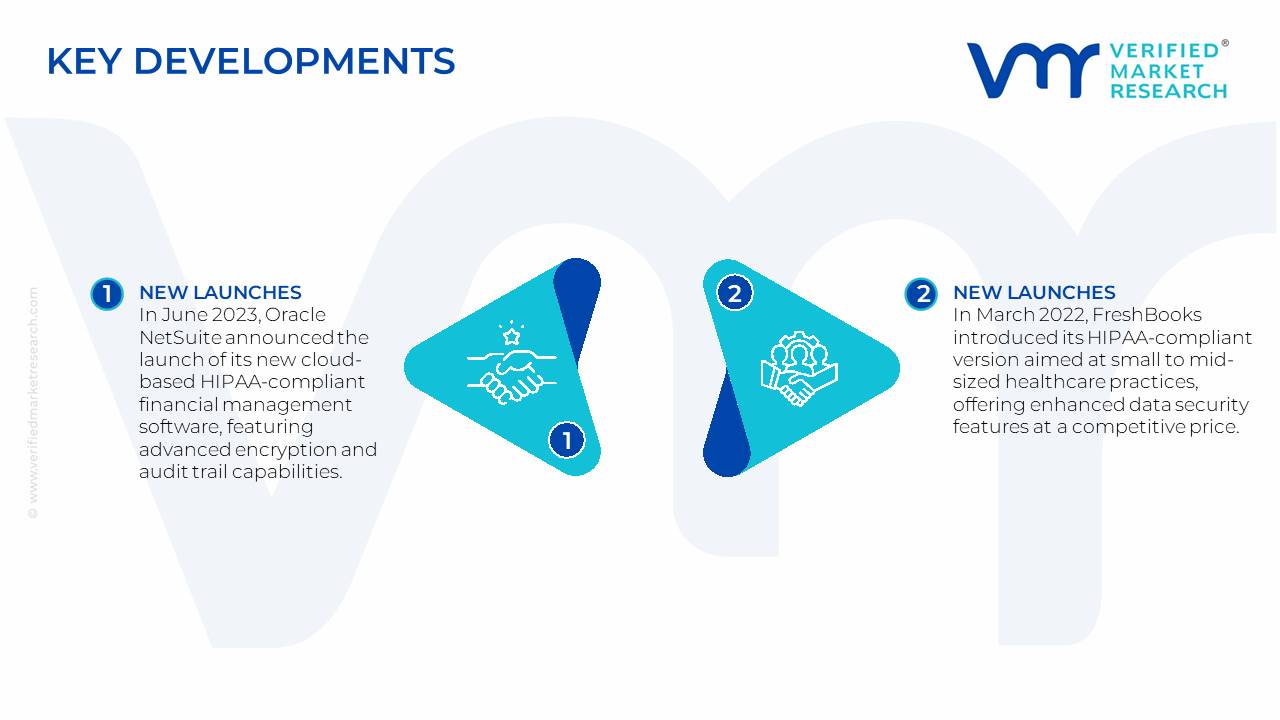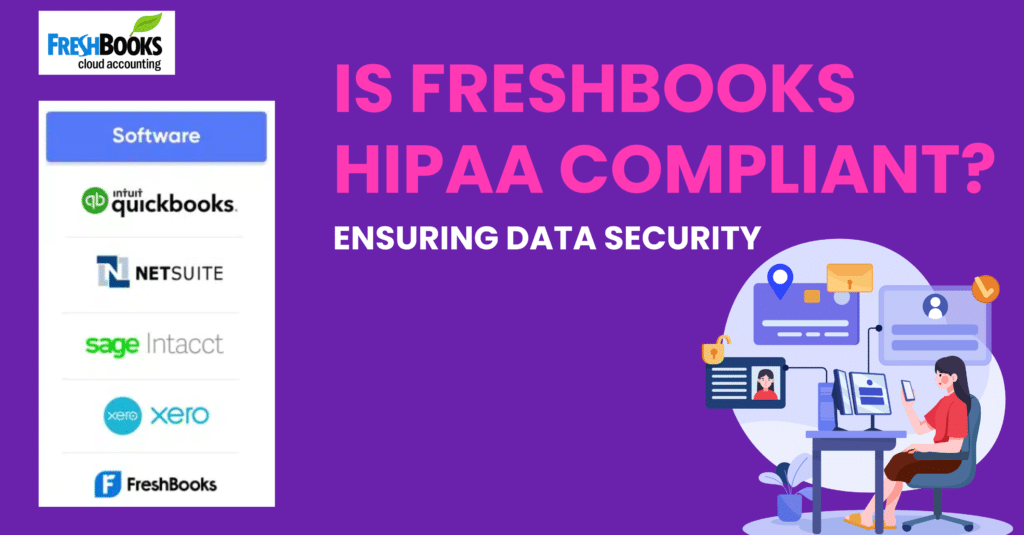Yes, FreshBooks is not HIPAA compliant. FreshBooks is a cloud-based accounting software primarily designed for small businesses.
It lacks the necessary features and safeguards required for HIPAA compliance. Understanding compliance is crucial for businesses handling sensitive health information. HIPAA, the Health Insurance Portability and Accountability Act, sets strict standards for protecting patient data. Many businesses in the healthcare sector need software that meets these standards.
While FreshBooks offers excellent accounting tools, it doesn’t provide the security measures needed for HIPAA compliance. This means FreshBooks might not be suitable for businesses dealing with protected health information. In this post, we will delve deeper into why FreshBooks falls short of HIPAA requirements and explore alternatives for healthcare providers.
Introduction To Freshbooks
FreshBooks offers various accounting features for businesses. It is not HIPAA compliant, meaning it should not be used for storing patient health information. Users needing to handle medical data must look for other solutions.
Freshbooks is a popular accounting software. It is designed for small businesses and freelancers. It helps manage invoicing, expenses, and time tracking. Many users love its simple interface and powerful features. But is Freshbooks HIPAA compliant? Let’s first understand what Freshbooks is and its popular features.
What Is Freshbooks?
Freshbooks is cloud-based accounting software. It simplifies financial tasks for businesses. It offers tools for invoicing, expense tracking, and reporting. Users can access it from anywhere with an internet connection. Freshbooks aims to make accounting easy and efficient.
Popular Features
Freshbooks offers many features to help businesses. Here are some of the most popular ones:
- Invoicing: Create and send professional invoices quickly.
- Expense Tracking: Track expenses and categorize them easily.
- Time Tracking: Log hours worked and create accurate invoices.
- Reporting: Generate financial reports to understand your business.
- Payments: Accept online payments directly through invoices.
- Client Management: Store and manage client information in one place.
| Feature | Benefit |
|---|---|
| Invoicing | Send professional invoices quickly and easily. |
| Expense Tracking | Track and categorize expenses for better financial management. |
| Time Tracking | Log hours worked and create accurate invoices. |
| Reporting | Generate reports to understand your business finances. |
| Payments | Accept online payments directly through invoices. |
| Client Management | Manage client information in one place. |

Credit: www.netsolutions.com
Understanding Hipaa Compliance
HIPAA, or the Health Insurance Portability and Accountability Act, sets the standard for protecting sensitive patient data. Businesses that handle protected health information (PHI) must ensure they have proper safeguards in place to comply with HIPAA. This section dives into what HIPAA compliance entails and its core requirements.
Hipaa Overview
The Health Insurance Portability and Accountability Act (HIPAA) was enacted in 1996. Its primary goal is to protect patient information and ensure data privacy. HIPAA applies to health plans, healthcare clearinghouses, and healthcare providers.
HIPAA consists of five main rules:
- Privacy Rule
- Security Rule
- Enforcement Rule
- Breach Notification Rule
- Omnibus Rule
Key Hipaa Requirements
To comply with HIPAA, businesses must meet several key requirements. These include:
- Administrative Safeguards: Policies and procedures to manage the selection, development, and maintenance of security measures.
- Physical Safeguards: Controls to protect electronic systems and related buildings from natural and environmental hazards.
- Technical Safeguards: Technology and policies to protect and control access to electronic PHI.
- Privacy Rule: Ensures the protection of patient health information while allowing the flow of health information needed for high-quality healthcare.
- Security Rule: Specifies safeguards to protect the confidentiality, integrity, and availability of electronic PHI.
| Requirement | Description |
|---|---|
| Administrative Safeguards | Policies for managing security measures. |
| Physical Safeguards | Controls to protect physical systems and buildings. |
| Technical Safeguards | Technology to control access to electronic PHI. |
| Privacy Rule | Protects patient health information. |
| Security Rule | Ensures confidentiality and integrity of electronic PHI. |
Ensuring HIPAA compliance can be complex. Businesses must follow these guidelines strictly to protect patient data and avoid penalties.
Freshbooks And Hipaa
Many businesses use Freshbooks for their accounting needs. Healthcare providers must ensure their software is HIPAA compliant. HIPAA stands for the Health Insurance Portability and Accountability Act. It sets standards for protecting sensitive patient information. This section explores if Freshbooks meets these standards.
Is Freshbooks Hipaa Compliant?
Freshbooks is popular for invoicing and accounting. But is it HIPAA compliant? The simple answer is no. Freshbooks does not claim to be HIPAA compliant. This means it may not secure patient data as required by HIPAA.
Official Statements
Freshbooks has made statements about HIPAA. According to their support team, Freshbooks is not HIPAA compliant. They advise healthcare providers to avoid using Freshbooks for patient data. Instead, providers should seek software that meets HIPAA requirements.
Here are key points from Freshbooks’ statements:
- Freshbooks does not offer HIPAA compliance.
- It should not be used for storing or processing patient information.
- Healthcare providers need HIPAA compliant software.
Understanding these points is essential. It helps healthcare providers choose the right tools. Compliance with HIPAA is crucial for protecting patient data.
Data Security Measures
Data security is crucial for any platform handling sensitive information. FreshBooks ensures that your data is protected with robust security measures. This section explores key data security aspects: encryption standards and access controls.
Encryption Standards
FreshBooks employs top-notch encryption standards to safeguard your data. All data transferred between your device and FreshBooks servers is encrypted using 256-bit SSL/TLS encryption. This is the same level of encryption used by banks and financial institutions.
Data at rest is also protected. FreshBooks uses AES-256 encryption to secure stored data. This ensures that your information is safe from unauthorized access, even if physical security is breached.
Access Controls
Access to sensitive data is strictly controlled. FreshBooks uses role-based access controls (RBAC) to limit access to authorized personnel only. This means users only access the data necessary for their role.
Additionally, FreshBooks implements two-factor authentication (2FA). This adds an extra layer of security by requiring users to verify their identity using a second method, such as a mobile phone, before accessing their accounts.
Regular security audits and monitoring are conducted. FreshBooks ensures compliance with industry standards and regulations, enhancing the overall security framework.
Summary Of Data Security Measures
| Security Measure | Description |
|---|---|
| Encryption Standards | 256-bit SSL/TLS for data in transit, AES-256 for data at rest |
| Access Controls | Role-based access, 2FA, regular audits |
These measures ensure that FreshBooks provides a secure environment for your data, aligning with HIPAA compliance requirements.
Comparing Freshbooks With Hipaa-compliant Alternatives
Comparing Freshbooks with HIPAA-Compliant Alternatives is crucial for healthcare professionals. Freshbooks is popular for accounting, but it may not meet HIPAA standards. HIPAA compliance ensures data privacy and security. Let’s explore some top alternatives, their pros, and cons.
Top Alternatives
Here are some leading HIPAA-compliant accounting software options:
- QuickBooks Online
- Xero
- Zoho Books
Each offers features tailored for healthcare professionals.
Pros And Cons
| Software | Pros | Cons |
|---|---|---|
| QuickBooks Online |
|
|
| Xero |
|
|
| Zoho Books |
|
|

Credit: www.netsolutions.com
Best Practices For Data Security
Ensuring data security is crucial for any business, especially in the healthcare sector. With the rise of digital tools, understanding best practices for data security is essential. For those using FreshBooks, it’s important to know if it aligns with HIPAA compliance. Let’s explore some best practices for safeguarding your data.
User Responsibilities
Users play a significant role in maintaining data security. Here are some key responsibilities:
- Create strong passwords: Use a mix of letters, numbers, and symbols.
- Enable two-factor authentication: Adds an extra layer of security.
- Regularly update software: Ensure you have the latest security patches.
- Avoid sharing credentials: Keep your login information private.
- Use secure networks: Avoid using public Wi-Fi for sensitive transactions.
Regular Audits
Conducting regular audits is a vital practice for data security. Here are some steps to follow:
- Schedule periodic audits: Monthly or quarterly checks can uncover vulnerabilities.
- Review access logs: Monitor who is accessing your data and when.
- Check for compliance: Ensure your practices align with HIPAA standards.
- Identify and fix issues: Address any security gaps immediately.
- Document findings: Keep records of your audits for future reference.
Following these best practices helps safeguard your data and maintain trust with your clients. Remember, data security is a shared responsibility. Both users and providers must work together to ensure compliance and safety.
Legal Implications
Understanding the legal implications of HIPAA compliance is crucial. Freshbooks users must ensure their data management practices align with HIPAA standards. This involves protecting sensitive patient information and maintaining confidentiality. Non-compliance can lead to serious consequences.
Risks Of Non-compliance
Failing to comply with HIPAA can expose your business to several risks:
- Data Breaches: Unauthorized access to patient information can lead to data breaches.
- Reputation Damage: Non-compliance can harm your business reputation.
- Legal Actions: Patients may sue for negligence in protecting their data.
These risks highlight the importance of ensuring that Freshbooks is HIPAA compliant.
Penalties And Fines
The penalties for HIPAA non-compliance can be severe. They are categorized into four tiers:
| Tier | Description | Penalty Range |
|---|---|---|
| 1 | No knowledge of the violation | $100 – $50,000 per violation |
| 2 | Reasonable cause | $1,000 – $50,000 per violation |
| 3 | Willful neglect, corrected | $10,000 – $50,000 per violation |
| 4 | Willful neglect, uncorrected | $50,000 per violation |
Penalties can quickly add up, making compliance essential. Each violation can incur substantial fines, potentially bankrupting a business.

Credit: www.verifiedmarketresearch.com
Frequently Asked Questions
Is Freshbooks Hipaa Compliant?
FreshBooks is not HIPAA compliant. It lacks necessary security measures for handling protected health information (PHI).
Can Freshbooks Handle Medical Billing?
FreshBooks is not designed for medical billing. It’s best suited for general business invoicing and accounting.
Is Freshbooks Safe For Healthcare Professionals?
FreshBooks is not suitable for healthcare professionals. It does not meet HIPAA security standards for handling patient data.
What Accounting Software Is Hipaa Compliant?
HIPAA compliant accounting software includes QuickBooks with HIPAA-compliant add-ons, and Medisoft. They offer secure handling of PHI.
Conclusion
FreshBooks is not HIPAA compliant. This means it may not be suitable for healthcare businesses needing to protect patient information. Consider your needs carefully before choosing FreshBooks. Always prioritize data security and compliance in your decision. It is crucial to find tools that meet your regulatory requirements.
Explore other options if HIPAA compliance is essential for your business.


